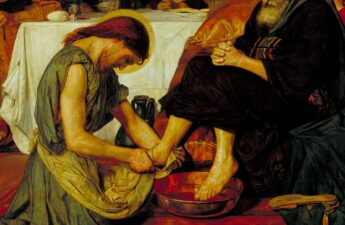“By increasing that unkindness, or by making it real, do you expect to remove the hostile feelings? You might as well think of removing some infection from an individual, by pouring into his lungs the deadly miasma. You might as well sow thistles in a garden…and expect to see up in their stead, a bed of roses.”
Vanarsdalen, 1835, The Philosophy of Forgiveness
In 1835, Rev. C. C. Vanarsdalen wrote an article which was published in the ‘American Advocate of Peace’ entitled ‘The Philosophy of Forgiveness‘.
In this piece, he advocates for what he calls the ‘law of God’, the idea that we should ‘overcome evil with good’. With this, he looks at how we deal with those who have wronged us and the road to forgiveness. He begins by pointing out that the very first thing we tend to do in a dispute is establish that we are the ones who were injured. In claiming their victim status, Vanarsdalen believed that people sanctioned their own vindictive feelings.
One of the things we battle with most in forgiveness, or in overcoming evil with good, is the idea of injustice.
Most people find it difficult to accept the idea that a wrongdoing should be met with kindness. How is it fair? But Vanarsdalen believed that the proposed notion does acknowledge the wrongdoing. It recognises the evil, but directly addresses the one who has suffered. It says to them, he thought, do not allow yourself to be overcome by the wrong, do not allow unkindness, or indeed evils, to change you or manifest negative reactions in you. Instead, he suggested that we should react in opposite, and for a number of reasons.
In a somewhat altruistic manner, Vanarsdalen believed the best course of action, is that which is most likely to cause a reformation in those who have done wrong.
Figuring this out, is quite easy he thought, all we need to do is observe ourselves. If someone is unkind, aggressive, or careless towards us, what effect does that have on us and our behaviour? In the same sense, if someone treats us gently, with patience and love, aren’t we a lot more likely to react in a similar fashion? People tend to react in kind. He also felt that by responding in this way, people are more likely to recognise their bad behaviour, make amends and act differently in the future. ‘Like should produce its like’. We should choose our behaviour therefore, on what would produce a positive change in those who have done wrong.
He also encouraged us to aim for what would actually change the bad into something good.
If we’re honest, usually we are very quick, and happy, to react in line with our emotions. Anger and other emotions we feel when someone wrongs us are hard to control it’s true, but there also is a delight that arises when we indulge in them, especially when we’re feeling sanctimonious. However, in retaliating with anger or with more unkindness, it is foolish to think that it would generate anything other than the same again in return. And on and on it goes. Everyone’s feelings are going to remain the same- hostile. Vanarsdalen would instead, have us be more concerned with how to remove the ‘infection’, rather than indulging in our negative feelings.
“You may load an enemy with chains, but he is your enemy still-you may immure him in a dungeon- but even there his heart is meditating revenge.”
Vanarsdalen, 1835, The Philosophy of Forgiveness
In a very pragmatic sense, he speaks of what action results in a desirable outcome for the person who was wronged.
Is it not true, he argues, that someone who is not indulging in anger and hatred, is more at peace? Is choosing forgiveness, kindness and sympathy not better for our own soul he asked? He asks us to look at two people-one is obsessed with how he was wronged, busy indulging in resentment and anger, while the other refuses to indulge in these emotions, and rises above them in order to act with sympathy, overcoming what was done against him. Who, he asked, would we envy more? Whose soul would we prefer to have? Who is better off in themselves?
Vanarsdalen also pointed out that we, from when we are born, are dependent on the good nature and good will of others.
We are social beings, who need and cherish the affections of those around us. We’re not exempt from condemnation when we do wrong, and we should assume that we are very capable of doing wrong. We then, he believed, should have some ability to empathise with those who wrong us. We have all done something out of the way and have likely been shown forgiveness by someone. ‘For by condemning others, we condemn ourselves.’
The notion of overcoming evil with good is a tough one to swallow.
We can be so overcome with anger and hurt that is seems simply impossible to step over them and see what lies beyond. Vanarsdalen’s advice may seem like a highfalutin, pious dream. But we know that indulging in anger and resentment is no good, we know it solves nothing for either party. We know that if we’re honest, we can see how it damages and distorts our soul over time, or failing that, we can certainly see it in others. The whole point is to aim as high as we can, and what Vanarsdalen speaks of is a high state of emotional control, wisdom and perspective in dealing with conflict. Something worth aiming for.
“You feel that it is not in the power of others to injure you-you only can injure yourself.”
Vanarsdalen, 1835, The Philosophy of Forgiveness




